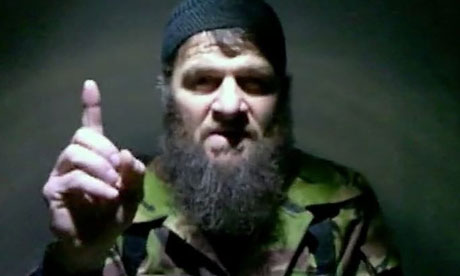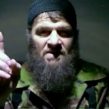
Russian Government Displays Little Innovation in Improving Security Situation
Publication: Eurasia Daily Monitor Volume: 8 Issue: 28
By:

On February 7, the leader of the North Caucasian insurgency, Doku Umarov, claimed responsibility for the suicide bombing attack at Moscow’s Domodedovo airport on January 24, which killed 36 people and wounded over 100. In an unusually politicized and polemic video address posted on the Kavkaz Center website, Umarov stated the insurgency was committed to “freeing the North Caucasus from Russian rule.” The insurgent leader justified the campaign of violence with claims that all previous fights for political freedom were necessarily violent and that Muslims have been attacked and killed in the North Caucasus and across the world. Umarov argued that the insurgents were only staging occasional attacks rather than regular ones in order to avoid more casualties and to allow the Russian people to change their attitude toward the North Caucasus. The video address itself appeared to have been recorded on January 24, the day of the Domodedovo attack (www.kavkazcenter.com, February 7).
Umarov’s statement directly contradicts the claim made by Russian Prime Minister, Vladimir Putin, on January 26 about the airport attack being “not linked to Chechnya” (RIA Novosti, January 26). Putin also claimed that the North Caucasus insurgents have no clear demands and cannot put into words what they want, equating them with “anarchical terrorists” (www.1tv.ru, February 3). This remark by Putin is important, as it may reflect the growing pressure on the Russian government to do something decisive about the North Caucasus, including negotiations or even a complete withdrawal from the region. So the Russian prime minister is trying to pretend there is nothing to negotiate about and no conflicting side to negotiate with.
The North Caucasus insurgent leader took responsibility for the attack in Moscow two weeks following the event. Normally, it takes the insurgents only several days to take responsibility for an attack. It is worth noting also that Umarov’s appearance on the video was his first in several months, thus refuting claims made by Chechnya’s pro-Moscow administration that he may have died.
Earlier, on February 4, the Kavkaz Center website published another video address by Umarov, which showed him with two other people, including a young man named Seifullah who was being sent to Russia for an unspecified “special operation.” Umarov promised “weekly, monthly attacks” on Russia, “depending on [its] reaction” and available resources (www.kavkazcenter.com, February 4). While Umarov speaks in the February 4 video about 50-60 potential suicide bombers ready to attack Russia, in his February 7 video he increases that number to the “hundreds.” Some observers also found a resemblance between the young man in the video and the photograph of a 20-year-old Ingush, Magomed Yevloev, who is thought to have been the suicide bomber at the Moscow airport (www.lifenews.ru, February 3).
On February 8, Russian officials came up with more details about the Domodedovo bombing, concluding that the illegal armed group behind the attack was in fact “absolutely autonomous.” In a rather sensationalist manner, the security services also stated that the group drove two cars in Moscow with Danish diplomatic tags. The Danish Embassy in Moscow rushed to contact the police, but the police reassured them that the suspicious cars simply had phony Danish diplomatic tags. Three people, including Magomed Yevloev’s brother Islam, have been arrested as possible accomplices in the airport suicide bombing. All three come from the village of Ali-Yurt in Ingushetia, where the suspected suicide bomber resided. The number of actual arrests may be far higher, as the whereabouts of Yevloev’s family are unknown (www.gazeta.ru, February 8).
Meanwhile, police in Ingushetia said they did not find any evidence confirming Magomed Yevloev was the suicide attacker during a search at the Yevloev family’s house in Ali-Yurt. According to Ingushetia’s police, besides Yevloev’s remains, parts of other bodies were found at the site of the airport attack that might belong to the real suicide bomber (www.kavkaz-uzel.ru, February 7).
At a government meeting on February 3, President Dmitry Medvedev publicly criticized the security services for “indulging in PR” instead of delivering results in the investigation. Medvedev said that law enforcement officials should not declare cases solved before charges are formally brought against suspects. The president’s criticism came several days after the January 29 announcement by the Russian Investigative Committee that the Domodedovo bombing case had been “solved.” The statement was later revised to refer instead to “serious advances in the investigation.” On February 2, the day before Medvedev’s criticism, Putin also declared the Domodedovo attack solved (www.gazeta.ru, February 3).
The aftermath of the Domodedovo airport bombing has resulted in the proliferation of theories about who staged the attack and how. The Nogai Jamaat, Pakistani insurgents, a Russian Muslim convert, Russian nationalists and Middle Easterners all were suspects at one stage or another. Numerous details were fed to the media and subsequently withdrawn. It appears the Russian security services have a very well entrenched system of misinforming the public that works far better than the actual investigative bodies of the same services.
On February 8, the Federal Security Service (FSB) announced the dismissal of two FSB colonels in connection with the airport attack. Earlier several other obscure figures were dismissed by the Russian interior ministry. At a special meeting of the Russian State’s Duma that same day, the head of the Russian Investigative Committee, Vladimir Bastrykin, proposed taking the fingerprints of all Russian citizens in order to fight terrorism better. Russian Interior Minister, Rashid Nurgaliev, came up with an idea of organizing citizen militias to contain the insurgency. State Duma Speaker, Boris Gryzlov, suggested increasing the punishment for people who raise false alarms about a terrorist threat. The government is working on overhauling the security systems for transport in Russia, but it is not yet known exactly what this will entail (www.gazeta.ru, February 8).




